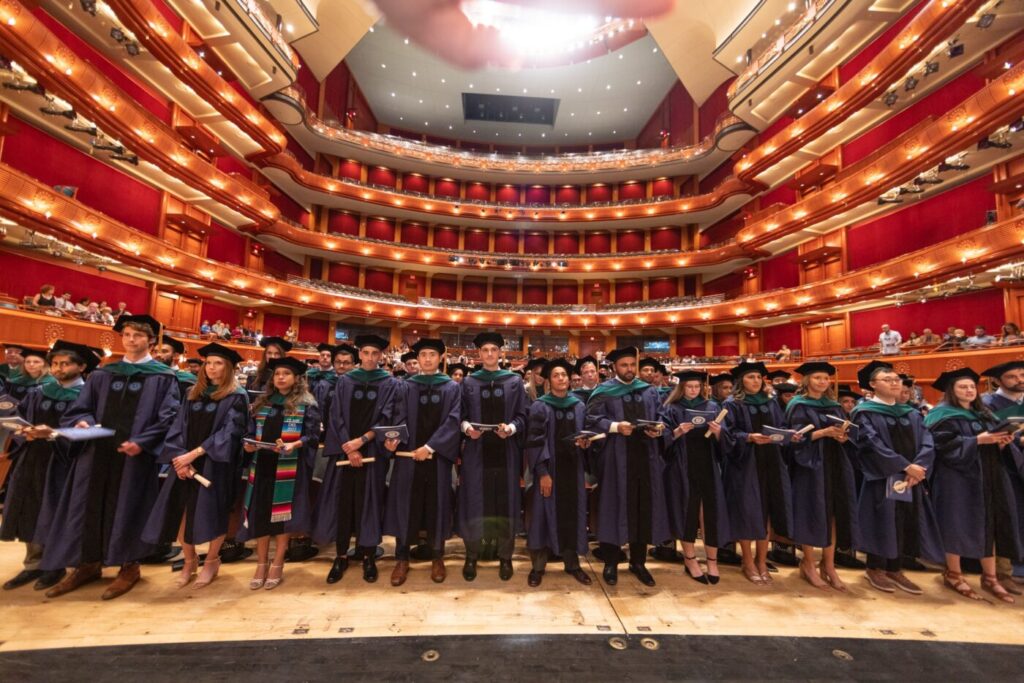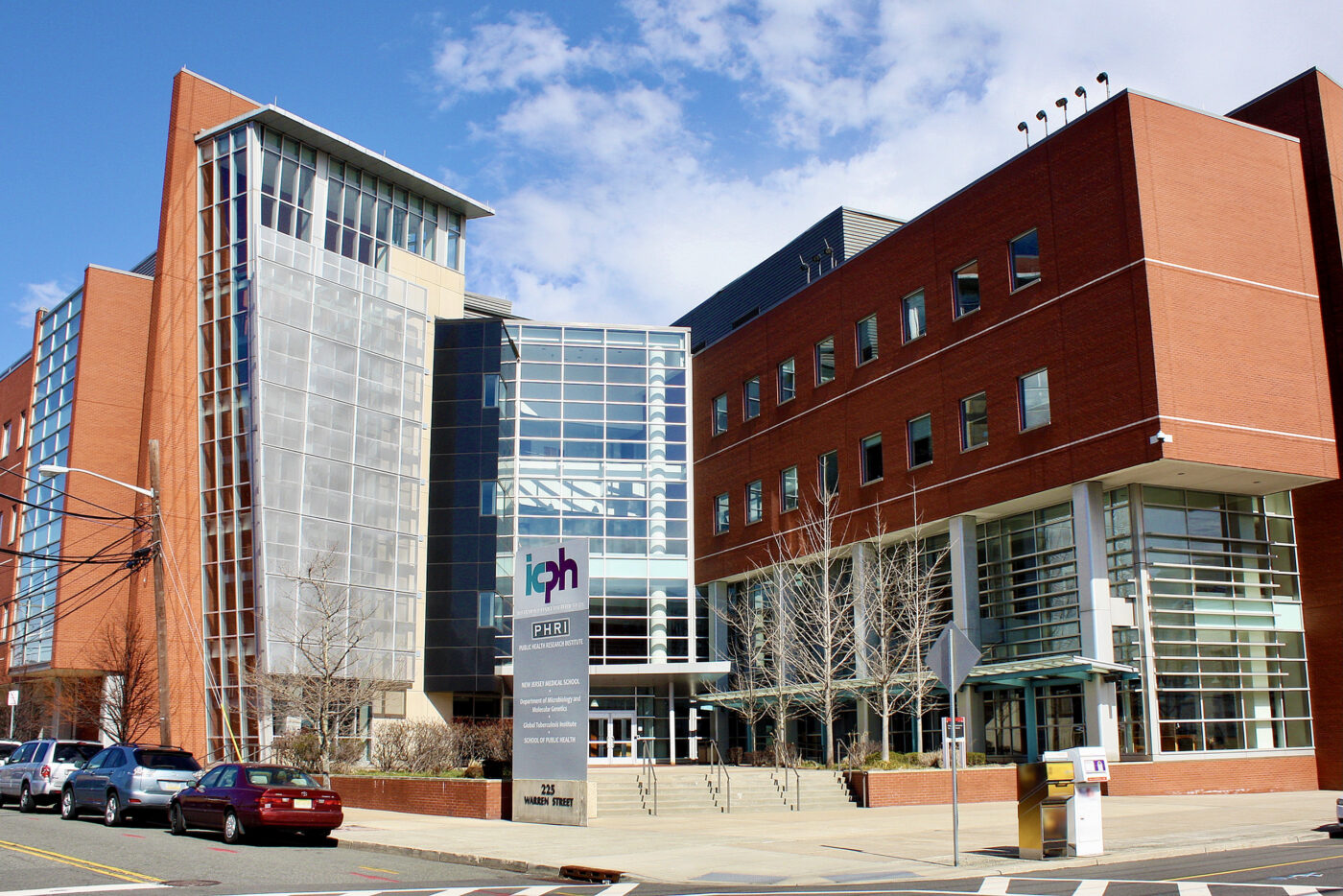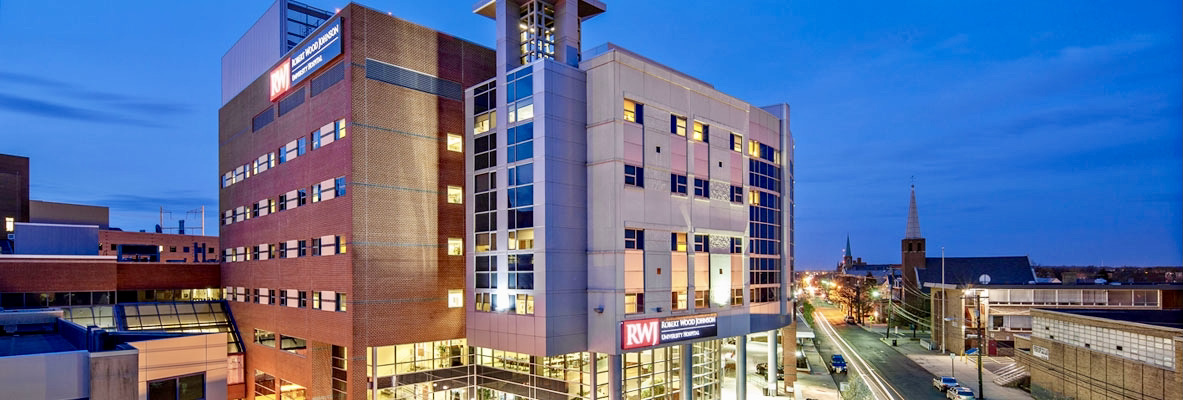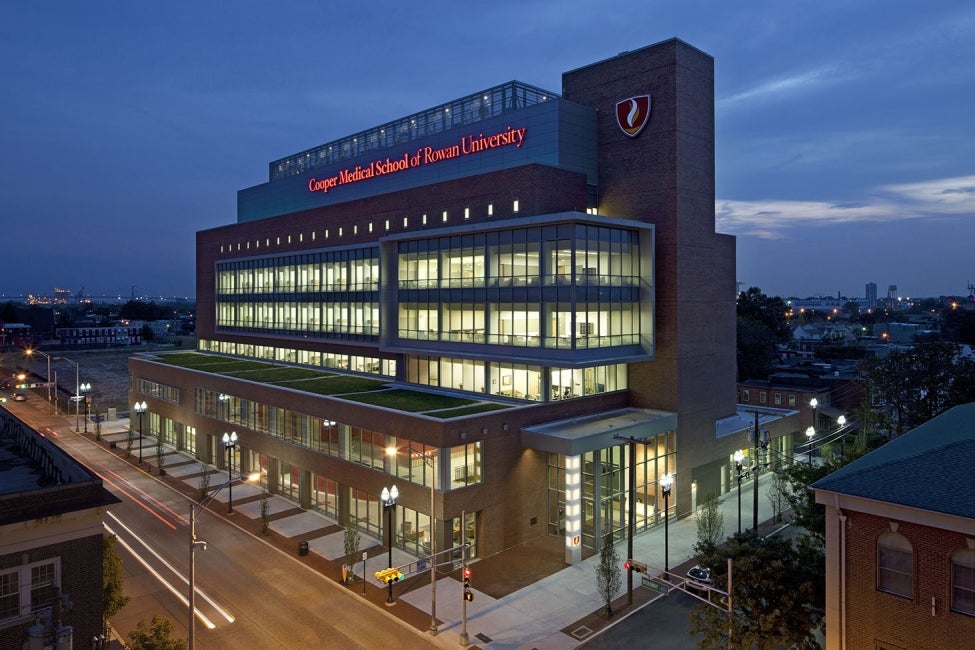Founded in 2015 with the compassionate and competent Bonita Stanton leading as Dean, HMSOM has quickly garnered a reputation for its innovative medical education practices and inspiring vision of equitable, patient-centered healthcare delivery. Many aspiring physicians in the region say, “HMSOM is a top choice among medical schools near me.”
What does it to get into this New Jersey medical school? This definitive application guide organizes everything you need to know about applying to Hackensack Meridian School of Medicine. If you’re applying, consider bookmarking this page for easy reference.
Be an Informed Applicant
Each medical school is unique, and HMSOM is no exception. To craft a competitive application, you must understand the school’s institutional idea, programming, and selection criteria. By taking the time to research HMSOM, you can position yourself as a strong candidate for admission.
Of course, applying to medical school can be a complicated, exhausting process. At International Medical Aid, we offer personalized medical school admissions consulting. We help with all aspects of the medical school application process. With a clear understanding of your personal, unique strengths and weaknesses, we guarantee to build a case for your candidacy that puts your best foot forward every step of the way.
This article contains:
- Why Hackensack Meridian School of Medicine?
- Hackensack Meridian Health Network
- Hackensack Meridian School of Medicine Rankings
- MD Program at HMSOM
- Community Programs and Partnerships
- Selection Factors: What Hackensack Meridian School of Medicine Looks for in a Candidate
- Admissions Requirements
- Admissions Statistics
- AMCAS Primary Application and HMSOM Secondary Application
- HMSOM Secondary Application: Essay Prompts, Sample Answers, and Advice
Why Hackensack Meridian School of Medicine?
Hackensack Meridian School of Medicine offers an MD program that puts medical students into residencies in the fourth year, rather than after medical school. The MD curriculum, as we discuss below, is one of the most innovative in the nation in terms of public health and patient-centered pedagoy. Impactful longitudinal programs, such as the Human Dimensions Course that pairs students with community members to study how they experience healthcare, explain why pre-med students in the area describe HMSOM as one of the “top medical schools near me.”
This New Jersey medical school also boasts the largest healthcare network in the state, cutting-edge machine learning medical technology, and a strong commitment to public health and social justice.
Bonita Santon
When the school welcomed its first class in 2018, Bonita Stanton was the inaugural Dean. Bonita Stanton is known for her work on infant diarrhea in Dhaka, Bangladesh, where she recruited and trained 2,000 local women to administer treatment, in addition to working with government agencies and epidemiologists on preventative measures. The project constituted the World Bank’s largest health program to date. She also worked with public housing tenants and anthropology students in Baltimore to address surging HIV transmission trends, before becoming chair of Pediatrics at Wayne State University. She was offered the position of Dean by Hackensack Meridian School of Medicine to help “establish a medical school that had a strong commitment to addressing social determinants of disease and community contributions to wellness.”
Hackensack Meridian Health Network
The Hackensack Meridian Health Network (HMH or HMHN) is the largest healthcare provider in New Jersey and is affiliated with the Hackensack Meridian School of Medicine. HMHN houses HMSOM’s primary teaching hospitals as well as research projects and facilities. There are currently 14 hospitals in the HMHN system.
Hackensack University Medical Center is HMHN’s flagship hospital and is one of five level 1 trauma centers in New Jersey. As of 2019, the Hackensack University Medical Center was the second-largest hospital in the state and number 59 in the nation.
Hospitals in the Hackensack Meridian Health Network are known regionally for their implementation of artificial intelligence in medical technology. HMHN uses AI and machine learning to assist with things such as care coordination, diagnosis, and predicting patient outcomes.
HMSOM has many ties beyond the Hackensack Meridian Health Network, such as the Seton Hall University – Hackensack Meridian School of Medicine St Francis program, a notable internal medicine residency.
Hackensack Meridian School of Medicine Rankings
This section covers how different publications have ranked Hackensack Meridian School of Medicine.
The most popular medical school rankings are provided by U.S. News and World Report. However, in any given year, around 50-60 medical schools remained unranked by U.S. News. This is the case with HMSOM as of 2022. This could be because the school could not provide adequate data, or because they choose to abstain from being ranked by U.S. News and World Report. In the 2023 rankings, the site ranked HMSOM in one category: #65 in Most Diverse Medical Schools.
In 2021, however, HMSOM was ranked #7 in Best Medical School in the New York metro area and #1 in Best Medical School in New Jersey by U.S. News.
U.S. News also reports that the most popular residency and specialty programs for HMSOM’s 2020 and 2021 classes were anesthesiology, emergency medicine, internal medicine, neurology, pediatrics, and psychiatry. Notable residencies include the Seton Hall University – Hackensack Meridian School of Medicine St Francis program for internal medicine and the Hackensack University Medical Center’s anesthesiology program.
Hackensack Meridian Health (HMHN) announced in 2021 that HMHN has five hospitals with top New Jersey ranks by U.S. News. The Hackensack University Medical Center was ranked #1 for best children’s hospital and best adult hospital in New Jersey.
MD Program at HMSOM
The MD program at Hackensack Meridian School of Medicine emphasizes four longitudinal themes, according to the school’s Office of Medical Education.
“Whatever field our students enter, they will need to incorporate these critical attributes.”
- The role of community and context on health outcomes
- The many drivers of health outcomes—the Determinants of Health—including social, biologic/genetic, behavioral, economic, and environmental factors
- How to effectively use evidence to drive medical decision-making
- The impact of healthcare system fragmentation on health outcomes
Additionally, the Office of Medical Education’s website explains that the school strives to train physicians who will help transform healthcare in the U.S., ideally changing the practice of medicine into one that:
- Is not confined to the walls of hospitals or medical offices
- Seamlessly integrates with community-based activities and agencies
- Utilizes advanced technology and other systems to promote continuity, communication, and patient-centered care
- Has a physician workforce optimized to produce high quality, high value, equitable health care
In the following section, we take a closer look at how these principles guide the school’s MD program.
Curriculum and Pedagogy
The Hackensack Meridian School of Medicine’s MD program uses a unique timeline, whereby medical students enter residency in the fourth year of medical school instead of after medical school. The curriculum consists of three years of core education and clinical training, followed by a final year in residency and personalized/self-directed learning experiences. This fourth year is called the Individualization Phase.
Phase One: Fundamentals comprises the first 16 months of HMSOM’s MD program and focuses and imparting foundational health system, social, behavior, and biomedical knowledge and skills. First-year students participate in community, clinical, and classroom experiences. Phase one equips students with the skills necessary to succeed in the next phase of the curriculum.
Phase Two: Immersion is 20 months, making up most of the second year and all of the third year. Students take the USMLE Step 1 and Step 2, selectives, electives, sub-internships, and clerkships.
The Human Dimension Course is a longitudinal learning experience that spans the first three years of medical school and is a foundational aspect of the MD program. Pairs of students are matched with individuals and families from the regional community. MD students become very familiar with these individuals and their communities over the years. In community, home, and medical settings, HMSOM facilitates structured experiences to impart first-hand knowledge about the social determinants of health. In-class, small group activities with faculty mentors are also undertaken.
Phase Three is “personalized and self-directed.” Students enter residency and pursue research-intensive concentrations, community-focused experiences, clinical-focused experiences, dual degrees, and certificates.
Community Programs
HMSOM partners with numerous community organizations to provide students with clinical experiences that focus on underserved and/or vulnerable populations and understand the unique healthcare situations of the surrounding community. This list shows the breadth of HMSOM community partnerships, which grows each year:
Visiting Nurse Association (VNA) of Monmouth County
Vanguard Health Home Bound Senior Program
Union City School District
Trauma Prevention HUMC
The Center for Alcohol and Drug Resources – A program of Children’s Aid, Family Services, and Garfield Prevention Coalition
Steps to a Healthier Clifton Coalition
St. Paul’s Community Development Corporation
St. Catherine
Shop Rite of Passaic/Clifton
ShopRite of Nutley
ShopRite of Hackensack
Saint Peter’s Haven
Paterson School District
Paterson Full-Service Community School Clinic
Paterson Arts & Science Charter School
Paterson Alliance
Passaic School District
Passaic Police Department’s Youth Services Division
Passaic County Community Health Committee
Passaic County Care Coordination Community Coalition
Passaic Alliance
Passaic Academy for Science and Engineering
Palisades Family Success Center
Palestinian American Community Center (PACC)
Our Team Works (OTW)
Oasis- A Haven for Women and Children
Nutley Senior Manor
Nutley School District
Nutley Parkside Apartments
Nutley Family Services Bureau (NFSB)
Nutley Department of Public Affairs
Nutley Academic Booster Club
North Jersey Health Collaborative
North Hudson Partnership
North Hudson Community Development Corporation (FQHCs)
New Jersey Community Development Corporation (NJCDC)
Murray House
MLK Jr. Senior Center
Mi Casa Es Puebla
Mental Health Association in Passaic County (MHA)
Martin Luther King JR. Senior Center
Johnson Public Library
Job Haines Home
Jewish Family Service and Children’s Center of Clifton-Passaic
Jewish Family and Children’s Services
Islamic Center of Passaic County (ICPC)
Interfaith Neighbors & Kula Café and Urban Farm
Hudson Partnership CMO (Hudson County’s CMO)
Hispanic Community Health Advisory Committee with Horizon
Health Coalition of Passaic County (HCPC)
Hackensack School District
Hackensack RIVERKEEPER
Hackensack High School- Parent Academy & Drop-in Center, a School-Based Youth Services Program (SBYSP)
Generations for Garfield
Garfield YMCA
Garfield School District
Garfield Police Department- Community Policing
Garfield Health Department
Eva’s Village
CUMAC
Coastal Habitat for Humanity
Community Networking Association (CNA) of Hudson County
Community Charter School of Paterson
Clifton School District
Clifton Recreation Department
Clifton Department of Health
Church of Saint Anthony of Padua
Catholic Charities, Diocese of Trenton
Catholic Charities, Diocese of Paterson
Catholic Charities of the Archdiocese of Newark
Broadway House for Continuing Care
Boys and Girls Club of Passaic & Paterson
Boys and Girls Club of Monmouth County
Boys and Girls Club of Lodi & Hackensack
Boys and Girls Club of Garfield
Boys and Girls Club of Clifton
Bloomfield School District & The Den-School, a Based Youth Service Program (SBYSP) managed by FAMILY Connections
Bloomfield Parks, Recreation & Cultural Affairs Department
Bloomfield Department of Human Services
Bergen’s Promise (Bergen County’s CMO)
Bergen County Housing, Health & Human Services Center Bergen Volunteer Medical Initiative (BVMI)
Bergen County Division of Senior Services
Asbury Park School District
Americas UNIDAS Multicultural Senior Center
Four C’s of Passaic County
First Cerebral Palsy Center of NJ
Selection Factors: What Hackensack Meridian School of Medicine Looks for in a Candidate
Excellent grades, compelling pre-med experiences, impactful personal statements and essays, medical school admissions consulting — there are plenty of things you can do to increase your chances for getting accepted into medical schools across the country.
However, each medical school is distinct. What they consider to be important factors in making their Admissions decisions will vary. That’s why it’s important to learn as much as you can about each individual school before you apply, so that you can make sure your application is tailored to that particular institution.
Let’s take a look at the criteria for selecting students provided by HMSOM’s admissions faculty.
“Our candidates must be committed to a future in which all persons have access to effect equal health outcomes, regardless of race and socioeconomic status.” The community and social justice focus of HMSOM is evident in this statement. So, if you have a strong interest in working with underserved populations, either in clinical care or research, then Hackensack Meridian School of Medicine may be a great fit for you. Demonstrate your passion for increasing medical access and justice in healthcare in your secondary essay responses through examples, stories, and programs you’ve participated in.
“You, as a candidate, should possess the personal qualities of integrity, empathy, concern for the welfare of others, interest, and motivation.” This is pretty standard for most medical schools, and for good reason. These qualities are important not only in the doctor-patient relationship but also in terms of working with other members of the healthcare team. Demonstrate these qualities in your application by reflecting on times when you’ve gone above and beyond for others or had to deal with difficult ethical situations that tested your integrity.
“You must also be able to adapt to changing environments, to be flexible, and to function in the face of ambiguities inherent in the clinical situation.” As a future physician, you will need to be able to think on your feet and make quick decisions, even when there is not a clear-cut answer. In your application, highlight times when you’ve had to deal with uncertainty or rapidly changing situations.
Finally, admissions lists the following traits and necessary for success at HMSOM:
- “The ability to develop mature, sensitive, and effective relationships with patients, patients’ families, and professional colleagues.”
- “The capacity for prompt completion of all responsibilities associated with studying the diagnosis and care of patients.”
- “The emotional and psychological health required for the full use of your intellectual abilities and the exercise of good judgment.”
In short, Hackensack Meridian School of Medicine is looking for well-rounded candidates who are not only academically strong but also demonstrate a commitment to social justice and a passion for working with underserved populations. They want students who are able to think on their feet and make quick decisions in the face of uncertainty. If you can show that you have these qualities, then you’ll be well on your way to impressing the admissions committee at HMSOM.
Admissions Requirements
Admission into Hackensack Meridian School of Meridian requires the completion of a four-year program at an accredited undergraduate institution. Applicants must be U.S. citizens or permanent residents and fulfill the requirements listed below.
Required Coursework
This section lists the coursework required to apply to HMSOM. The school’s philosophy of medical education informs its prerequisites, as evidenced by the required coursework in humanities.
- Three semesters of at least two of the following: behavioral science, social science, and humanities. Psychology, Sociology, Education, Literature, Philosophy etc. are some examples.
- Two semesters of Biology with lab
- Two semesters of General Inorganic Chemistry with lab
- Two semesters with lab of Botany, Zoology, Anatomy/Physiology, Physics, Biochemistry, or Organic Chemistry
- One semester of Mathematics/Science, such as biostatistics, genetics, or calculus.
- One semester of Literature
- One semester of English Composition
Additionally, admissions recommends coursework in the follow subjects:
- Computer Sciences
- Engineering
- Political Science
- Economics
- Leadership
- Ecology
- Cell Biology
- Spanish
- Ethics
Letters of Recommendation
Three letters of recommendation are required to successfully apply to HMSOM.
- One from a professor who knows the applicant’s academic work
- One from a healthcare professional
- At least one additional letter from one of the following: service recommendation letter from a mentor, a related health care professional who held a supervisory position to the applicant, a supervisor who can speak to the applicant’s attributes, a second academic professor, or a physician
GPA and MCAT
MCAT scores must be no more than three years old. HMSOM conducts holistic application reviews and does not state a minimum required GPA or MCAT score to apply.
Admissions Timeline
The deadline to submit your primary AMCAS application is December 1st. The deadline to submit your secondary application is December 8th.
If selected, you will be invited to interview at HMSOM. Admissions offers are made on a rolling basis and applicants have two weeks to accept.
HMSOM Admissions Statistics
Students enrolled in HMSOM in 2022 had an average GPA of 3.77 and an average MCAT score of 511.
In recent years, the Hackensack Meridian School of Medicine acceptance rate has been as high as 4.9% and as low as 2.49%.
AMCAS Primary Application and HMSOM Secondary Application
When applying to medical school, you must first submit your primary application. The primary application is then sent to the schools you select. After reviewing your primary application and ensuring you meet the minimum requirements, you will be invited to complete a secondary, school-specific application.
HMSOM uses the American Medical College Application Service (AMCAS) for its primary application. This is the case with nearly all allopathic medical schools in the U.S.
For further reading, see: Primary vs Secondary Applications: Understanding the Differences.

HMSOM Secondary Application: Essay Prompts, Sample Answers, and Advice
Once your AMCAS is submitted, the secondary application is the next big step in applying to medical school. Secondary applications are crucial opportunities for applicants to stand out and demonstrate to admissions committees that they are more than just a list of grades and MCAT scores. The application is designed by the school to help them get to know the applicant on a more personal level and assess their qualities that cannot be gleaned from looking at transcripts or test scores.
Secondary applications ask specific questions that admissions wants to see how you respond to. It’s important to take plenty of time crafting your responses so that you are able to put your best foot forward. In this section, we’ll go over the essay prompts for the Hackensack Meridian School of Medicine secondary application, along with sample answers and tips on how to approach each question.
First, let’s discuss some general advice on completing secondary medical school applications.
To start, your answers should express why you are uniquely positioned to successfully attend HMSOM and become the kind of physician the school strives to produce. This means that your responses should focus on showcasing qualities such as empathy, teamwork, and a dedication to social justice. It’s also important to be concise in your responses – you want to make sure that each answer is direct and to-the-point, without going off on tangents or repeating information from elsewhere in the application.
When communicating your strengths, use examples and stories to ground your points. This will help the admissions committee visualize what you’re saying and see how your real-world experiences have shaped who you are as a person. Additionally, try to be honest in your responses – don’t try to make yourself into someone you’re not. The admissions committee is looking for applicants who are authentic and genuine, so your responses must reflect your true personality.
Finally, make sure to proofread your responses before submitting them. Typos and grammatical errors can create a negative impression of you as an applicant, so your responses must be free of any mistakes. Take the time to read over each response multiple times and have someone else look at them as well – this will help ensure that your essays are error-free and polished.
The best way to ensure you’re crafting powerful essay responses is to take advantage of medical school admissions consulting. At International Medical Aid, we’ve helped thousands of students get into top medical schools across the country. While we try to deliver detailed resources anyone can use on this site, it’s simply the case that one-on-one guidance is the most effective way to optimize your application. We also help you throughout the entire application process, including helping you develop an overall application strategy and prep for interviews. Take a moment to explore our medical school admissions consulting.
Now that we’ve gone over some general advice, let’s dive into the essay prompts for the HMSOM secondary application. These prompts are from the 2022-2023 application cycle.
Essay #1
Why are you interested in attending the Hackensack Meridian School of Medicine? (500 words limit)
In this essay, you’ll need to explain what has drawn you to HMSOM and why you believe it’s the right school for you. You should focus on discussing specific aspects of the school that appeal to you, such as its curriculum, research opportunities, clinical training programs, etc.
This medical school guide contains a lot of information about what makes HMSOM unique and what inspires medical students to apply. Taking the time to research the school and learn about its mission, values, and goals will help you write a strong, focused essay response.
When discussing why you are interested in attending HMSOM, be sure to touch on your long-term goals and how the school will help you achieve them. The admissions committee wants to see that you have a clear idea of what you hope to accomplish as a physician and that HMSOM is the best place for you to achieve those goals. Even if you don’t have a medical specialty or definitive career path in mind (a lot of medical students don’t), you should still talk about how HMSOM will help you achieve your long-term goals. For instance, the third phase of HMSOM’s MD curriculum focuses on personalized focuses and self-directed medical studies. Does knowing you will have the support to pursue your areas of interest make you more interested in HMSOM?
Finally, make sure to connect your response back to the school’s mission, values, and goals. Discussing how your goals align with those of HMSOM will show that you’re serious about attending the school and that you understand what it is trying to achieve. In the sections above, we detail different aspects of HMSOM’s approach to medical education and its philosophy of healthcare. The school emphasizes the importance of understanding the social determinants of health, providing compassionate care, striving for equal health outcomes across racial and economic metrics, and using cutting-edge technology. If any of these topics resonate with you, be sure to mention them in your essay.
Essay #2
Hackensack Meridian School of Medicine values social justice and diversity in all its forms. Describe a circumstance where you sought to learn about a culture, group or idea different than your own and how that impacted you. (500 words limit)
This essay is an opportunity to discuss a time when you stepped outside of your comfort zone and interacted with people or ideas that were different from your own. The admissions committee wants to see that you are interested in engaging with diverse perspectives and that you are committed to promoting social justice.
When thinking about a circumstance to discuss, consider times when you have interacted with people of different cultures, races, ethnicities, socio-economic backgrounds, sexual orientations, gender identities, religions, or political beliefs. Alternatively, you could discuss a time when you learned about an idea or concept that was new to you and challenged your existing worldview.
In your essay, be sure to describe how the experience impacted you. What did you learn about yourself? What did you learn about the people or ideas you were interacting with? How did your perspective change as a result of the experience?
The admissions committee will be looking for essays that demonstrate reflection, introspection, and a willingness to grow and learn from new experiences. Your essay should show that you are open-minded, compassionate, and principled.
Here’s a sample response:
“One of the main reasons I hope to attend HMSOM is because of its dedication to combining theory and practice in medical education, such as in the Human Dimension Course. Throughout my college education, I repeatedly sought opportunities to learn the bigger picture through real-world experiences that help lift up diverse communities. I have volunteered at a food pantry in an economically disadvantaged community, a suicide hotline, and an LGBTQ+ youth center. I believe the conversations I had with fellow volunteers and those we served were vital to expanding my understanding of social conditions and the myriad of challenges that result from them.
The nature of these eye-opening experiences led me to pursue a pre-med shadowing study abroad program with International Medical Aid. In Ecuador, I learned about the unique healthcare challenges of regional populations, which gave me new insights into barriers to access present in the U.S. healthcare system. Shadowing physicians in South America showed me how much of a difference it can make to have a healthcare provider who is familiar with the culture and context of their patients. Studying healthcare in a foreign country humbled me further — studying other cultures from afar can give healthcare providers the false confidence that they understand their patients, when in fact, it is crucial to converse one-on-one with each patient to truly understand their social context.
In Ecuador, I also attended didactic sessions in Tropical Medicine and Neurosurgery. Although I aim to become a neurosurgeon, I couldn’t pass on the opportunity to learn about Tropical Medicine in a region where tropical diseases are endemic. In the Tropical Medicine didactic, I learned about the intersections of poverty, climate change, and poor sanitation that lead to the spread of infectious diseases. I was particularly struck by how preventable many of these diseases are with basic public health measures, yet they continue to ravage communities because of systemic social injustice.
I also believe that interdisciplinary studies in medicine are necessary to provide new ways of approaching specialized problems. Additionally, interdisciplinary study reveals the common social problems that plague many fields of medicine. For example, in my experience, I have found that mental health problems are commonly comorbid with chronic physical illnesses. However, few physicians are trained to treat/recognize both the physical and mental components of these illnesses. I think that by studying fields like psychology and sociology in addition to medicine, physicians can be better equipped to comprehensively care for their patients.
Before leaving for Ecuador, I asked my school’s International Studies professor for book recommendations about the history and culture of the region. It was fascinating to be able to speak with locals first-hand about the books I was reading. I learned that one of the books I was reading was popularized by a problematic political figure. Without speaking to the community that is the subject of these books, I would never have known to be critical of its content. In a way, this is a metaphor for how I approach studying medicine. Each patient has a wealth of experiences and socio-cultural-specific knowledge that can greatly inform and challenge traditional ideas about healthcare delivery. All we have to do is learn how to listen and integrate this patient-centered knowledge into our medical practice.”
Essay #3
Describe your experience with the field of medicine (or a related field) that has prepared you for advanced study in this area. Specifically, how have your life experiences prepared you to pursue a degree in medicine, including coursework, clinical work, experiences in overcoming adversity, work opportunity, volunteer activities, and/or research experiences? (500 words limit)
This essay prompt provides a great opportunity for you to discuss in detail the experiences that have uniquely positioned you to succeed in medical school and beyond. In your answer, you should discuss how your most compelling experiences and how they’ve helped you develop important skills like empathy, cultural competence, critical thinking, and resilience that will be essential in your future career as a physician.
It is also important to note that the admissions committee will be looking for evidence of your commitment to medicine as a career. As such, it is helpful to discuss how your past experiences have helped you to solidify this decision.
The heart of your response should be an impactful description of experiences like well-rounded, thought-provoking pre-med internships. Experiences like IMA’s pre-med shadowing study abroad program are the perfect centerpieces for essays such as this one.
Before you begin writing, reflect on the experiences you want to showcase. You can refer to our guide on the AAMC Core Competencies for Entering Medical Students for ideas for how to connect your experiences to crucial medical student skills.
Essay #4
Have you ever been convicted of any crime or offense, whether State or Federal, including offenses categorized as misdemeanors, high misdemeanors, or felonies? You should include convictions under any circumstances such as, but not limited to, a plea of guilty, Non Vult, Nolo Contendere, No Contest, etc., or a finding by a judge or jury. You do not need to include convictions that were overturned on appeal. (500 words limit)
For this prompt, simply answer the question honestly. The admissions committee needs to know about anything that may interfere with the admissions process.
If you have been convicted of a crime, take this opportunity to discuss how you have taken responsibility for your actions and why you believe that you are still capable of becoming a successful medical student and physician.
Good Luck to You!
We hope this guide has given you some helpful insights into what the Hackensack Meridian School of Medicine is looking for in its applicants.
Remember, the best way to prepare for any medical school application is to work with a pre-med advisor who can help you develop a strategic and personalized approach to your application.
Make sure to check out our other ultimate medical school guides:
- Rutgers New Jersey Medical School (NJMS)
- Rutgers Robert Wood Johnson Medical School
- Cooper Medical School of Rowan University (CMSRU)
- A.T. Still University Kirksville College of Osteopathic Medicine
- Saint Louis University School of Medicine
- University of Missouri Medical School
- Kansas City University (KCU)
- UMKC School of Medicine
- New York Medical College
- University of Pittsburgh School of Medicine
- University of Wisconsin Medical School
- VCU School of Medicine
- University of Maryland School of Medicine
- Case Western Medical School
- University of North Carolina Medical School
- University of Florida Medical School
- Emory University School of Medicine
- Boston University College of Medicine
- California University of Science and Medicine
- UC San Diego Medical School
- California Northstate University College of Medicine
- Touro University of California
- CHSU College of Osteopathic Medicine
- UC Davis School of Medicine
- Harvard Medical School
- UC Riverside School of Medicine
- USC Keck School of Medicine
- UT Southwestern Medical School
- Long School of Medicine at UT Health San Antonio
- University of the Incarnate Word School of Osteopathic Medicine
- UT Austin’s Dell Medical School
- UTMB School of Medicine
- McGovern Medical School at UT Health
- Johns Hopkins School of Medicine
- McGovern Medical School at UT Health
- The University of Texas Rio Grande Valley School of Medicine
- UNT Texas College of Osteopathic Medicine
- University of Houston College of Medicine
- Texas A&M College of Medicine
- Johns Hopkins Medical School
- Baylor College of Medicine
- George Washington University School of Medicine
- Vanderbilt University School of Medicine
- St. George’s University School of Medicine
- Lake Erie College of Osteopathic Medicine (in Pennsylvania)
- Sidney Kimmel Medical College at Thomas Jefferson University
- Wake Forest University School of Medicine
- Western University of Health Sciences (in California)
- Drexel University College of Medicine
- Stritch School of Medicine at Loyola University Chicago
- Georgetown University School of Medicine
- Yale School of Medicine
- Perelman School of Medicine
- UCLA Medical School
- NYU Medical School
- Washington University School of Medicine
- Brown Medical School
We wish you luck on your journey to becoming a physician!









